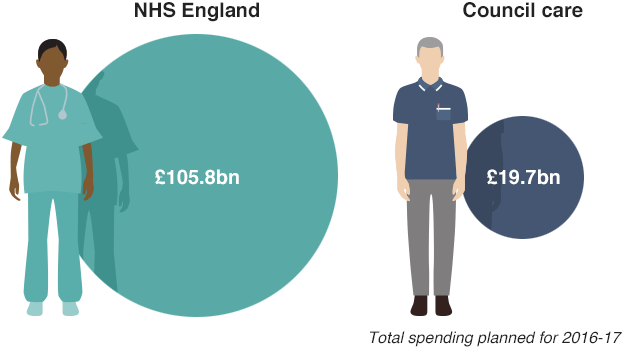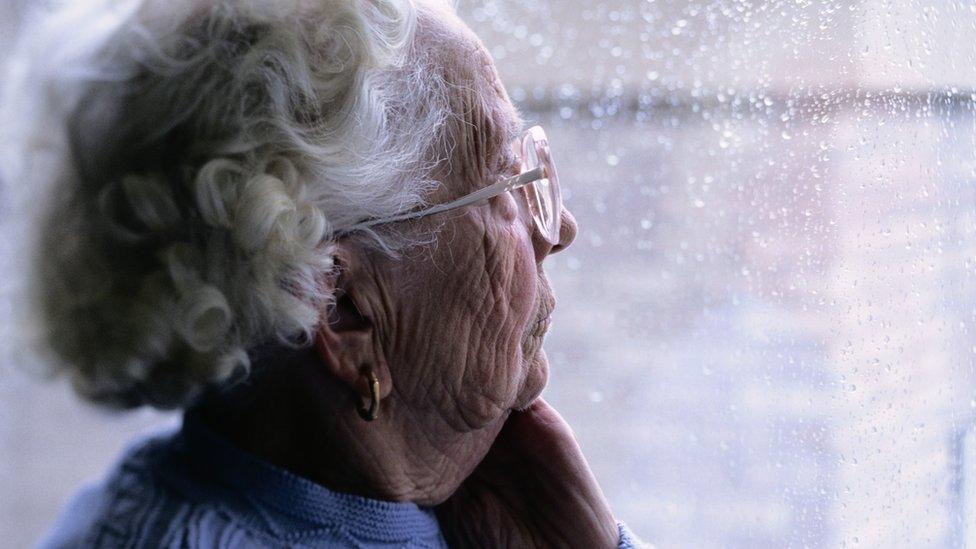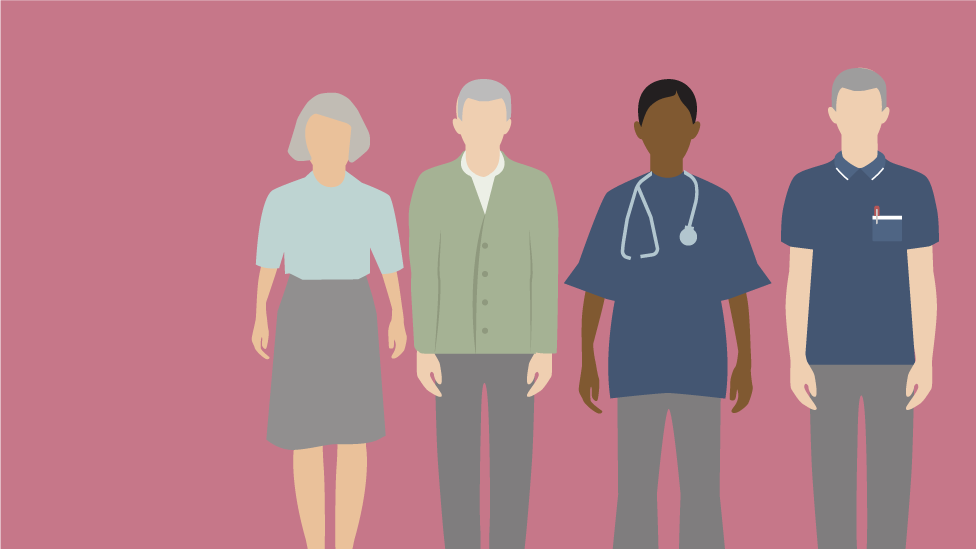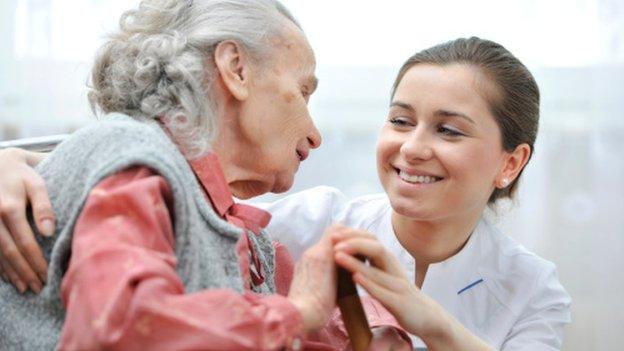Reality Check: Is social care getting more money?
- Published

The Claim: Spending on adult social care is facing its biggest crisis despite government's claim that there will be an extra £3.5bn in the system for England by 2020.
Reality Check verdict: Social care could get up to an estimated £3.5bn extra in England by 2020 through council tax increases and a contribution from central government. A similar amount, though, has been cut from social care budgets since 2010 and the extra money would not solve the longer term problems of caring for a population which is continuing to age and whose demands are increasing.
Council leaders, charities and an independent regulator have all said there is not enough money going towards care for elderly and disabled people.
Speaking about a possible plan to increase council tax again to fund this care, Local Government Association (LGA) chair Cllr Izzi Seccombe said: "Unless the Local Government Finance Settlement provides a solution, we could be in the midst of the worst funding crisis social care has ever faced."
But in November, Health Secretary Jeremy Hunt claimed that "spending on adult social care increased by around £600m in the first year of the parliament" and "up to an additional £3.5bn can be spent during this parliament".
Social care funding is devolved and this figure refers to additional spending in England only.
£3.5bn?
The health secretary's claim might sound familiar - in the NHS, like in social care, the government claims to have provided more money than it was asked for, while people who work in health and care say services remain underfunded and are unsustainable in the long run.
So where does the £3.5bn figure come from? And why do the people running our care services think there is still not enough money to go around?
The 2015 Autumn Statement gave councils the power to increase council tax by 2% as long as they spend the extra money on adult social care.
The then chancellor George Osborne told the House of Commons that if authorities made full use of this power it would bring almost £2bn into the care system by 2019-20. The LGA subsequently calculated it to be more like £1.7bn.
Postcode lottery
This extra income from council tax, on top of money that central government has pledged to give to the Better Care Fund, gives us the £3.5bn figure.
The Better Care Fund is designed in part to help tackle the fact that a shortage of available care means many older people, in particular, end up in hospital unnecessarily, or stay in a hospital bed longer than they need to.
The NHS and adult social care sectors pool parts of their existing budgets to provide the fund with its money. But from next year, central government will top it up with extra cash, rising to £1.5bn by 2020.
Councils have since been told they can choose to raise council tax by 3% next year and 3% the year after instead of 2% each year for three years. This doesn't provide any extra money but allows struggling councils to get the extra cash in more quickly.
Communities Secretary Sajid Javid repeated the £3.5bn figure in a statement to the Commons on 15 December. He said bringing the tax rise forward would let councils raise an extra £208m next year, rather than accessing it further down the line.
He also said there would be a new £240m adult social care grant given to local authorities to spend on social care.
The policy of using council tax increases to put more money into social care has been criticised because the poorest councils are least able to raise income in this way - they tend to have the fewest residents who pay council tax and the lowest council tax rates.
For example, health think tank the King's Fund, external says the amount of extra money raised per head of the adult population varies from £5 in Newham and Manchester, to £15 in Richmond-on-Thames.
Most councils have made use of this power, but those in charge of social care say there is still not enough money to sustain services and keep up with rising demand. The King's Fund agrees, concluding that the publicly funded social care system faces the prospect of a £1.9bn funding gap next year.
Ageing population
Councils, therefore, have little choice but to cut back on the amount of care they provide and how many people they provide it to.
It is up to a local authority how much it spends on social care (provided it meets certain limited statutory responsibilities) and figures show the number of older people receiving local authority funded social care fell by 26% between 2009 and 2014, and 81% of local authorities have reduced their real-term spending on social care for older people over the last five years.
Charity Age UK says 1.2 million people who need help with daily activities, including washing, dressing and using the toilet, are not receiving the social care they require. This is an increase of 48% since 2010. And regulator the Care Quality Commission has said that from mid-2005 to mid-2015, the number of people aged 65 and over in the UK increased by 21% while the number aged 85 and over increased by 31%.
This is evidence that even after more money has been put into the system, the rise in demand along with the fact that services are starting from a negative position after years of cuts, means social care still does not have enough to keep up.

- Published12 December 2016

- Published13 September 2016

- Published28 January 2015
